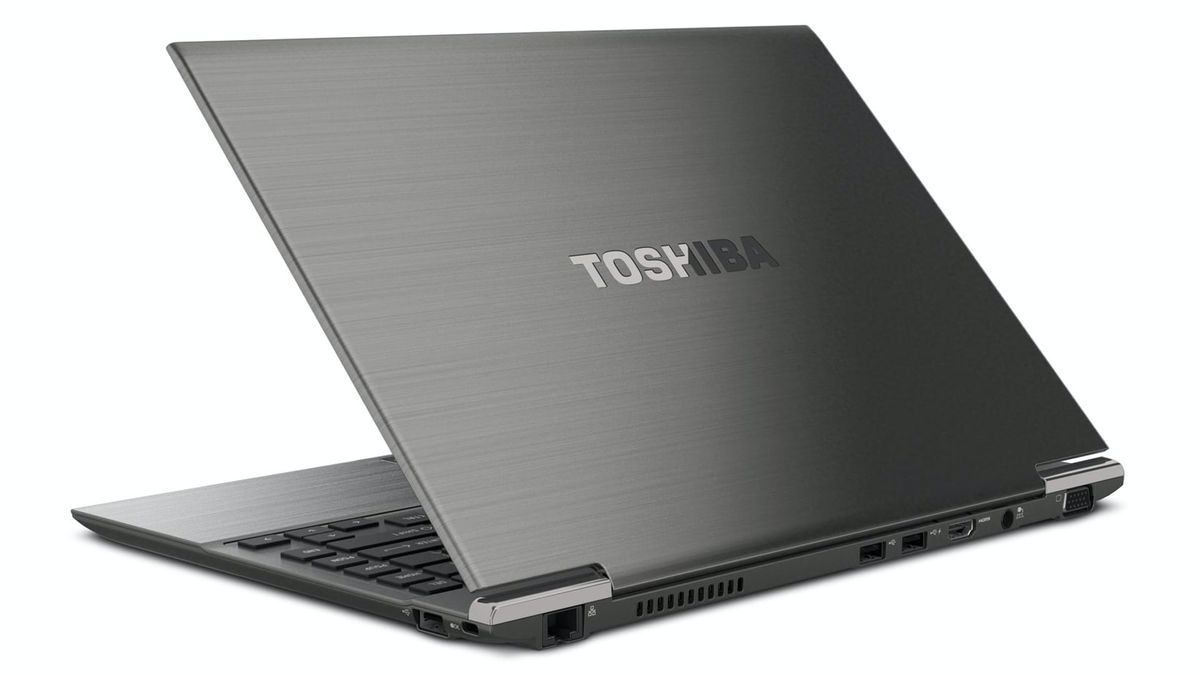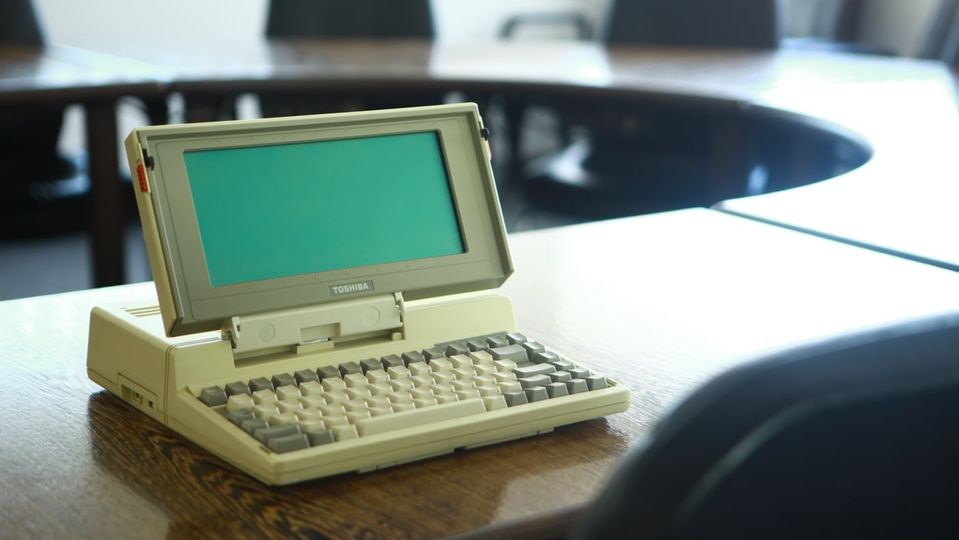Toshiba closes the lid on its laptop business
The Japanese brand was once synonymous with mobile computing and cutting-edge technology for the road warrior.

Thirty-five years ago, Toshiba created the world's first laptop PC – but this month, the former colossus of mobile computing closes the book on notebooks.
The news landed with the simple, sombre formality akin to a funeral notice. Two years ago, Toshiba sold an 80% stake in its PC business to Sharp (now a subsidiary of Taiwan's hulking Foxconn) for US$36 million.
Sharp renamed the division Dynabook, adopting a brand used by Toshiba, and has since exercised its right to buy the remaining stake, with Toshiba releasing a statement to confirm the deal was completed.
"As a result of this transfer, Dynabook has become a wholly owned subsidiary of Sharp," Toshiba's statement said.
Birth of the Dynabook
The original Dynabook was a concept developed by US computer scientist Alan Kay as far back as 1968 – turning a large, heavy desktop terminal into a compact carry-friendly device with its own screen and a battery, based on the footprint of a notebook.
Toshiba turned that into reality, beginning with 1985's T1100 laptop. "Our plan was for a clamshell-type transportable PC with an LCD and IBM compatibility," reflected Toshiba's project lead Atsutoshi Nishida in 2005. "Back then, transportable computers were becoming popular but they were very, very, very big."
Running an Intel processor and 'IBM-compatible' operating system with 256Kb of memory, a 640x200 pixel LCD screen (capable of displaying 25 lines of 80 characters) and a single 3.5-inch floppy disk drive: all packed into a 30cm footprint, albeit 6.6cm high and weighing 4.1kg.
Toshiba's upper management baulked at the practical appeal of the product as well as its stratospheric US$2,100 price tag, which is equivalent to $6,800 today.
Yet the T1100 quickly found favour with professionals and executives, hitting its sales target of 10,000 in the first year. "That is not many today but back then it was a very large quantity," Nishida says.
Nishida cleverly worked with major software companies to make sure the T1100 could run the key apps of the day, beginning with making them available on the relatively new 3.5-inch 720Kb floppy disks at a time when the desktop-focussed industry had standardised on 5.25-inch disks.
This suite included the Lotus 1-2-3 spreadsheet, Ashton-Tate's dBase II database package and Microsoft Flight Simulator, at the time among the world's most popular PC games.
Toshiba quickly became one of the world's leading laptop brands, investing heavily in R&D as it steadily refined the notebook into several skews ranging from slim, light 'ultra-thin' models aimed at executives to productivity-minded fleet workhorses and value-oriented consumer models.
However, Toshiba eventually fell victim to the market it had created – a market crowded by more and more brands and models, with the technology and then the laptops themselves becoming commoditised to the point where there was little room for differentiation and less for profit margins.


03 May 2013
Total posts 686
Good riddance. A work one I was issued a few years ago was the most painful PC I have ever used.
Etihad - Etihad Guest
21 Jul 2019
Total posts 192
Don't normally praise or give much thought to any tech hardware companies but I'm actually sad to hear this. I've had a bunch of laptops used in tandem these past twenty-six years, all of them well known brands. Some have lasted as little as three months, most average about three years. But by far the best and most reliable ones are the Toshiba models. Vale, Brand Toshiba!
09 Mar 2015
Total posts 32
Decades ago I spent countless hours, days, weeks and months in front of some of the old plasma screen Toshibas, the ones with orange text, doing financials at a large company. It's hard to really explain to people what a game-changer these early laptops were. First they were all about just portability, then they started to get desktop-level abilities and later they got modems, either external or PC Card and later internal, so you could connect anywhere. We take laptops for granted these days and desktops are pretty rare, except mainly for iMacs, but it wasn't that long ago that laptops were rare.
24 Oct 2010
Total posts 2567
Writing this article made me reflect on the many Toshie's I've used over the decades, but the most memorable was my first, I think it was a T1000SE or a T-something-thousand-SE. Proper A4-sized notebook, mono blue screen and TWO 3.5in floppy drives. The 1MB of RAM let you use the top 384Kb (?) as temp storage for files to reduce slow and battery-consuming disk access. Ah, the fun of configuring your DOS startup files to maximise available RAM while also loading some essential files into 'high RAM'!
21 Jul 2020
Total posts 7
Good news for VAIO!
Qantas - Qantas Frequent Flyer
09 Jun 2017
Total posts 77
My first laptop was a Tosh T1910CS. Passive colour LCD that you could not read in any sunlight at all. 486SX 33Mhz processor (the low end version of the 486DX), 4MB of RAM, 120MB hard drive, clip on trackball mouse, Windows 3.1. Cost was obscene. You would earn lots of respect in the Flight Deck Club with one of those babies!
13 May 2020
Total posts 3
I remember being at a Toshiba forum held in Singapore many years ago for journos from Oz. I remember asking the execs there if they intended to persist with "battleship grey" when sleeker models like the ThinkPad and their industrial design were starting to be favoured more by the C level decision makers. The question was deemed offensive and met with a long frosty silence, before they stated that "what was inside matters more than the outside". In the end, that didn't work out too well for Toshiba (or for Intel).
Hi Guest, join in the discussion on Toshiba closes the lid on its laptop business